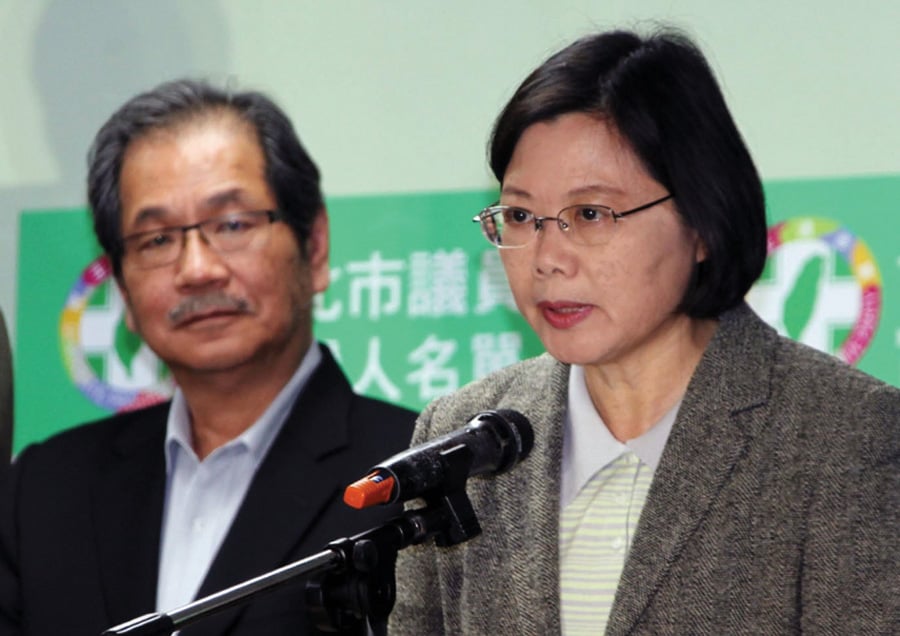Northwestern Instagram post featuring Taiwanese independence flag sparks backlash, interpreted as political statement
Huang Shaohua/Color China Photos/ZUMA PRESS/MCT
Taiwan Opposition Democratic Progressive Party (DPP) Chairwoman Tsai Ing-Wen November 27, 2010. Tsai cautions against giving China more leverage over Taiwan.
November 22, 2019
Northwestern faced backlash against a Nov. 21 Instagram post that featured the Taiwanese independence flag, leading some to decry the post for seeming to make a political statement.
The post Tuesday to the official Northwestern Instagram account pictured dozens of international students holding up flags to kick off International Education Week with a “March of Flags.” One student can be seen holding up a green flag with the words “I SUPPORT TAIWAN INDEPENDENCE” in English and Chinese, alongside another student holding the official flag of Taiwan.
Many saw the photo as supporting the Taiwan independence movement, and others criticized the University for allowing political statements to be made on the official account.
“what a shame that the official account of NU proudly treat such political statement as an important part of a non-political event,” user @wyxhxn wrote. “what a shame that the green flag shows up in the pic while all of the rest are national/regional flags. If this event is for student diversity, please keep politics away from it.”
In response to the criticism, Northwestern said it did not intend to make a political statement and in fact “would have preferred that no political statements be made” during the event. But it refused calls to delete the post, saying the University supported students’ right to free expression.
“We support and encourage free expression and free speech on campus and the sometimes uncomfortable debates that such speech inspires,” the response said. “Universities are a place for rigorous debate and discussion of difficult topics, and this is one of those times.”
China views Taiwan, an island off the southern coast, as a province. However, in Taiwan, which elects its own government, views differ on its relationship with the mainland. Calls for independence have strengthened in recent years after the island’s president rejected the “one country, two systems” framework and U.S. foreign policy increasingly has seen Taiwan as a balance against China’s power in the region.
This isn’t the first time Northwestern saw itself in the fray of geopolitical tensions. Earlier this year, the University said it opposed the Boycott, Divestment and Sanctions movement, a Palestinian-led effort to end international support for Israel because of its occupation of the West Bank and violations of international law.
The defense of the post was also emblematic of the University’s stiff defense of free speech. Some disagreed with calls to take the post down.
“I’d like to remind my dear Chinese peers that neither are political statements intrinsically contradictory with the principles of freedom of speech, nor are they inappropriate simply because you disagree with them,” user @5ukry6vt wrote. “Sentences don’t infringe national sovereignty, since any country with a sovereignty so vulnerable should have already disappeared.”
Email: [email protected]
Twitter: @_perezalan_


